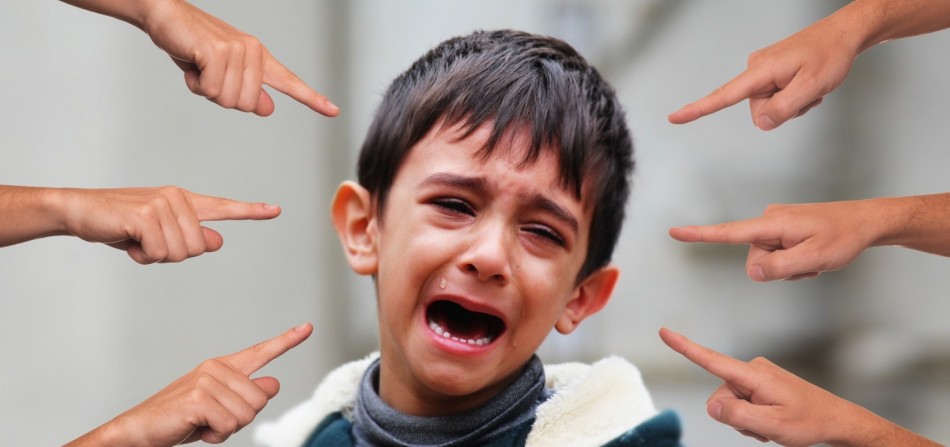A Parent's Guide on How to Deal with Bullies: Teaching Kids Not to be a Bully or Get Bullied

According to Psychology Today, bullying is a distinctive pattern of repeatedly and deliberately harming and humiliating others, particularly those who are smaller, weaker, younger, or more vulnerable than the bully. The intentional targeting of those with lesser power makes bullying different from garden-variety aggression. Both the bully and the bullied may have serious lasting problems.
Bullying can be verbal, such as name-calling and making fun of others, physical such as threats of harm, other kinds of intimidation, and deliberate exclusion from activities. Studies found that bullying peaks around ages 11 to 13 and diminishes as children grow older.
Overt physical aggression, such as kicking, hitting, and shoving, is the most common among younger children. As children mature, relational aggression is common. This usually damages or manipulates the relationships of others, such as spreading rumors and social exclusion.
Helping kids deal with a bully
Most bullying occurs in and around school and on playgrounds, even though the internet lends itself to specifically distressing forms of bullying. According to the National Center for Education Statistics, approximately 20 percent of students report being bullied at school, and boys and girls are equally likely to be bullied.
If the typical aggression of a 2-year-old is not handled with consistency, children fail to obtain internal restraints against such behavior. Bullying remains a durable behavioral style, mainly because bullies get what they want; thus, they are made, not born, and it happens early.
A study called "A New Approach to Stop Bullying" determined that the most effective way of stopping a bully is to involve bystanders, as they reward the bullied with attention. Being an active bystander means being aware of when someone's behavior is inappropriate or threatening and choosing to challenge it.
As most children witness bullying at some point, educating children about the important role to play in stopping bullying is essential. A bully may try to retaliate against one person who speaks up and hence is not likely to target several.
According to a website managed by the U.S. Department of Health & Human Services, StopBullying.gov, almost 50 percent of students in grades 4 to 12 experienced bullying within a month. More than 70 percent of students admit to having witnessed it occur in their school.
According to a University of California, Los Angeles study, Jaana Juvonen, professor of psychology at UCLA and lead author, stated that bullying and low academic achievement are commonly linked.
Students who are repeatedly bullied have poorer grades and participate less in class discussions as students, earning the tag of low achievers because they do not want to speak up in class for fear of getting bullied. Once students get labeled as dumb, they will perform even worse, per Public School Review.
Read Also: International Bullying Prevention Association Works To Get To The Bottom Of Bullying
Putting an end to bullying must start first at home
Steven Pastyrnak, Ph. D., the Division Chief of Psychology at Helen DeVos Children's Hospital in Grand Rapids, MI, said the typical bullying symptoms include physical complaints such as tummy ache, worries, and fears, and not wanting to go to school. A normal defense is to avoid or withdraw from things that are making them stressed.
Although it is natural and common for kids to fight with their siblings at home, do not let children resort to physical violence. Parents must keep an eye on the name-calling and fighting and regularly discuss it with their children about what is acceptable and what is not.
Parents must also be cautious with their behavior and how they talk around kids, as children who live with yelling, name-calling, putdowns, harsh criticism, or physical anger from a sibling or parent/caregiver may act that out in other settings.
If you behave aggressively toward or in front of your kids, chances are they'll follow your example, per Kids Health.
Related Article: Bullying: A Menace That Haunts The Mind Of Every Child And Parent
© 2024 ParentHerald.com All rights reserved. Do not reproduce without permission.
